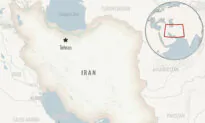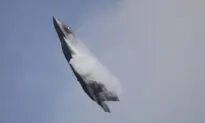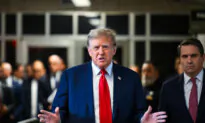At Wednesday’s Senate Intelligence Committee hearing assessing the threats of terrorism, many topics were covered: how Syria has become a magnet for terrorism and trains foreign troops who can then go back to their home countries and wage attacks on other nations (including the U.S); how the Snowden leaks have damaged national security and allowed terrorists access to the United States’ methods; details regarding the interim nuclear deal between six world powers and Iran; and the threat of cyber attacks. Despite these and several other global topics with implications for United States’ national security, the current situation in Bahrain seemed to have been ignored. Bahrain has been in a state of turmoil for a few years now and there does not seem to be any peace in the near future.
In 2011, the Shia minority began protesting against their Sunni led government. Similar to the situation in Iraq where Sunnis have become alienated from their government, Bahrain has suppressed their minority, which caused riots and revolts. These revolts have been going on for two years and many human rights advocates have asked for the help of other nations. Al Wefaq, the main rebel faction, demands changes to the constitution, better representation in their government, and even regime change.
Bahrain shares a causeway with Saudi Arabia, which connects the two nations. Directly across the Persian Gulf is Iran. Saudi Arabia and Iran are sworn enemies of differing cultures (Arab and Persian, respectively). Both nations have interests in maintaining majorities in the nation of Bahrain so as to exert further influence. Saudi Arabia has the largest Sunni population in the Middle East with between 18,158,981 and 19,227,157 and Iran has the largest Shia population in the Middle East with 71,069,971. According to a report by the Congressional Research Service (CRS), back in 2011 when the fighting started, Saudi Arabia sent troops at the request of Bahrain to help calm the protests.
Robin Wright, Senior fellow at the Wilson Center, writes that there has been a “centuries-old competition between Arabs and Persians for regional dominance” in the Gulf. Many experts in the foreign relations field believe that the uprisings in Bahrain could have ominous implications for insurgency and even assert that some of the protesting groups could be classified as terrorist organizations.
The United States, for the most part, has remained silent on this issue only offering aid and some arms. The United States has many concerns about getting too heavily involved in Bahrain. First, Bahrain is host to a naval base, which houses the U.S. Fifth Fleet. This strategic base was the primary base used during Operation Iraqi Freedom. As the CRS report states, “Critics of the Administration – primarily human rights-oriented groups such as Human Rights Watch and the Project on Middle East Democracy – say the U.S. response has been colored by the vital U.S. security interests in Bahrain rather than a commitment to promoting human rights.” Second, the United States has a free trade agreement (FTA) with Bahrain and has assisted with Bahrain’s labor organizations. According to the U.S.-Bahrain FTA, it “promotes the policy of advancing economic reforms and liberalization in the Middle East.” Even more interesting was United States’ opposition to a June 28, 2012 United Nations Joint Declaration (that 28 other nations supported), which condemned various human rights abuses associated with the Bahraini government’s handling of protestors.
Bahrain’s government opposes a nuclear Iran, which is why their diplomatic friendship, and strategic regional location are so important to the U.S. The on-going fighting could pose further schisms in the region between Sunnis and Shias – something the United States does not want to see. The continued instability could lead to potential security concerns for the United States if Iran truly is training certain rebel groups as the Bahraini government accuses. A Shia-led government in Bahrain, right next to Saudi Arabia, would tip the scale of regional dominance in Iran’s favor. As seen with the current crisis in Syria, Iran is not shy about sponsoring terrorist organizations. The naval bases that belong to the United States in the region could fall victim to terrorist attacks if the situation is not resolved.
With reports of citizens being shot by police and rebels being jailed, peace talks seem like a distant fantasy. The reality is that terrorist groups are drawn to unstable nations where they attempt to establish a presence. Bahrain is in a very strategic location – being so close to the countries that control a large portion of the world’s oil supply. It is very surprising that in a threat assessment, the top leaders of the U.S. intelligence community and Congressional overseers did not touch upon this volatile situation. In order to ensure its national security interests, its interests in combating global terrorism, and its basic human rights defenses, it would behoove the U.S. to focus more attentively on the conflict in Bahrain.

 Friends Read Free
Copy
Facebook
Tweet
Friends Read Free
Copy
Facebook
Tweet




























